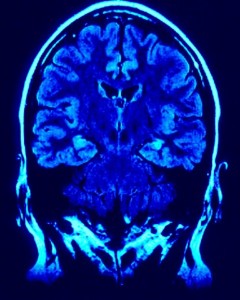Rewards Aplenty
Scientists are still uncovering surprising and powerful benefits of music education. Below are a few examples you can expect no matter your age (backed up by research and experience):
Stress and Mood Benefits
- Reduced stress
- Increased confidence
- Neurological increase of “good mood” neurotransmitters
- A safe and productive outlet to express strong emotions
- Doctors use music therapy to treat several mental illnesses
Brain Boosting Benefits
- Increased focus
- Promotion of language and reasoning neural networks
- Increased spatial abilities
- Increased creative problem solving skills
- Studies show students who study the arts perform better on SATs and several other common standardized tests
Promotion of Good/Useful Habits
- Emphasis on achieving positive results, rather than solely “observing”
- Learning to see mistakes as milestones to success
- Establishing both short- and long-term goals
- Taking time to be proud of your accomplishments
- Learning to be selective and strategic with time and learning focus
- Performance skills and comfort in front of an audience
- Learning to step outside your comfort zone and reap all the rewards!
Quality of Life Benefits
- Music is a fantastic way to make new friends
- Playing music can brighten up someone else’s day
- Playing music can help “reboot” your brain during mentally taxing tasks
- Check “join a band” and “write a song” off your bucket list
- Increased athletic performance (I’m as shocked as you are, but it’s true!)
- I’d be remiss not to mention that playing guitar has a massive cool factor
- Nothing beats the natural high you get performing on stage!
The Whole-Brain Workout
One reason music seems to improve so many mental faculties is because listening to and creating music involves many different processes in both brain hemispheres, and requires both the analytical and emotional areas of the our neurology.
For this reason, music has been promoted for eons for social bonding and childhood development. More recently, music has also been used to teach aphasic people to speak, paralyzed people to relearn how to move limbs, and people with depression, anhedonia, and tics to manage their conditions.
Having music in your life is a brain workout that will keep your senses and mind sharpened.
More information on the science of music…
Everything on the list to the right is based on scientific research. For an interesting look into how music affects us, I highly recommend the books “This Is Your Brain on Music” by self-described “rocker-turned-neuroscientist” Daniel J. Levitin, and “Musicophilia” by neuroscientist Oliver Sacks.
Both books are written for general audiences, and show glimpses of how music works, why we enjoy it, and how it benefits our lives. Levitin’s book explains how to understand music for non-musicians, the basics of how our neurology works, and how we are all able to do such amazing things with music. Sacks’s book focuses primarily on his experiences with anomalies in music perception, including hallucinations, memory triggers, and how musical perception can be affected by different types of brain injuries.
If you love music and science, you’ll love these books!
Material Rewards From Music
Most of the boons of music I’ve mentioned so far are intangible, but music education can also have material rewards. The “starving artist” stereotype doesn’t have to apply. With the right approach, you can turn your love of music into a lucrative career, and get paid to do something you love.
You can perform, record, compose, teach, promote, and even write about or comment on music for a living — and those are just a few of the options for music lovers.


